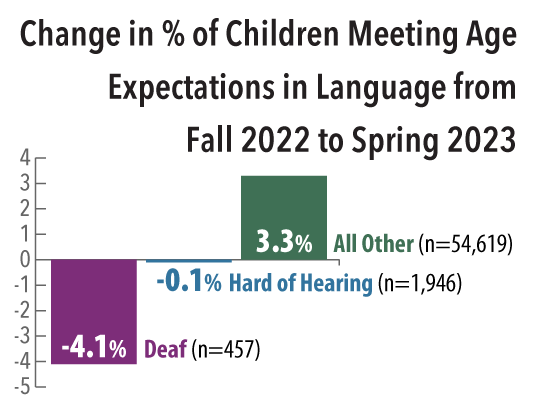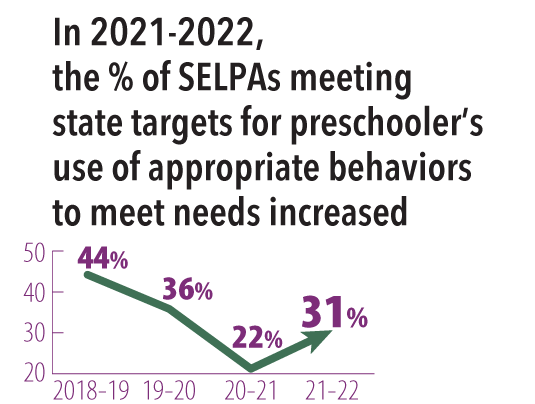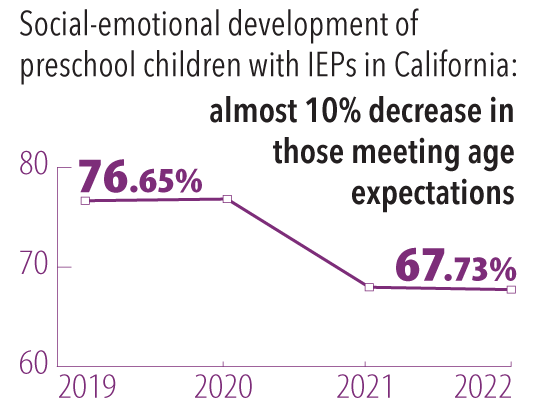Outlines the responsibilities of SELPA staff and special education administrators for the DRDP.
News & Updates
Special Education Administrators' Responsibilities for the DRDP
Data Byte: Language Outcomes for Deaf/Hard of Hearing Children
 There is an urgent need to support language rich environments for young deaf and hard of hearing children who are falling behind in language. The percentage of deaf children birth through five meeting age expectations decreased by 4 percentage points from fall to spring, a pattern indicative of falling farther behind on language benchmarks.
There is an urgent need to support language rich environments for young deaf and hard of hearing children who are falling behind in language. The percentage of deaf children birth through five meeting age expectations decreased by 4 percentage points from fall to spring, a pattern indicative of falling farther behind on language benchmarks.
Data Byte: California preschool special education services meet state target
 As part of child outcomes reporting, the DR Access Project annually calculates the percent of preschoolers exiting preschool special education functioning at age expectations in “Use of Appropriate Behaviors to Meet Needs”*.
As part of child outcomes reporting, the DR Access Project annually calculates the percent of preschoolers exiting preschool special education functioning at age expectations in “Use of Appropriate Behaviors to Meet Needs”*.
Data Byte: How Has COVID-19 Impacted the Social-Emotional Development of Children?
 Across the country we are seeing impacts on the social-emotional development of young children due to COVID. National experts explain that these impacts are the result of exacerbated adverse childhood experiences, limited opportunities for social interaction, and reduced enrollment in Pre-K and early intervention services.
Across the country we are seeing impacts on the social-emotional development of young children due to COVID. National experts explain that these impacts are the result of exacerbated adverse childhood experiences, limited opportunities for social interaction, and reduced enrollment in Pre-K and early intervention services.
Benefits of the DRDP (2015)
A document explaining how the DRDP (2015) helps to assure that California has a coordinated system working toward the same successful developmental outcomes, benefiting teachers and service providers, program administrators, and families.
DRDP Data Path for Special Education
Follow the path of DRDP data from teachers’ assessments, to planning instruction and federal reporting with this graphic and summaries of the systems for producing reports.
